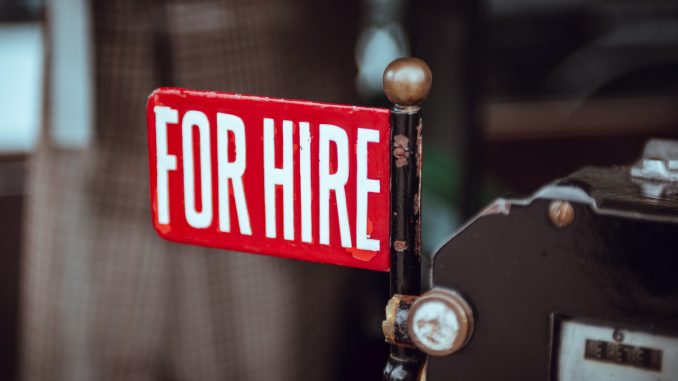
You submitted your resume, then waited, and finally, you received a request for an interview. Now, let’s nail the interview and get the job you want. Below are some of the most common interview questions and how to answer them.
Table of Contents
- 1. Tell me about yourself
- 2. How did you hear about this position?
- 3. Why do you want to work here?
- 4. Why should we hire you?
- 5. What is your greatest strength?
- 6. What is your greatest weakness?
- 7. Why are you leaving your current job?
- 8. What are your salary expectations?
- 9. Where do you see yourself in five years?
- 10. Do you have any questions for us?
1. Tell me about yourself
The interviewer wants to get to know you. This is one of the top interview questions and may often be the first question that an interviewer asks. So be prepared. Your answer to this question can lead to follow-up questions and shape the entire interview process.
You want to start talking about your current role, what your responsibilities are, and recent accomplishments. Focus on relevance. Then, transition smoothly to how you got to where you are now. Again, talk about relevant experience and accomplishments. In the end, talk about what you are looking to do next, and why you are interested in the job you are applying for.
Don’t be afraid to show some passion for your work. This is also your opportunity to demonstrate that you can communicate clearly and effectively and present yourself professionally.
Need more tips? Read How to answer “tell me about yourself”.
2. How did you hear about this position?
This is another common interview question. The interviewer wants to know if you’re an active or passive job seeker. An “active” job seeker is someone who is actively looking for a job. A “passive” job seeker is someone who will follow job leads that are given to them but won’t take the time to look for a job on their own.
The interviewer is also using this question to gauge your interest level in this job. He/she wants to know if you are targeted in your job hunt and are interested in the particular role rather than simply applying for every job you find.
When answering this job interview question, tell the interviewer about your job search and how you became aware of the open position. Don’t leave an impression that you will accept any job they can get. Make it clear that you are only interested in this specific job.
Need more tips? Read How to answer “how did you hear about this position?”.
3. Why do you want to work here?
This common interview question seems innocuous, yet can be tricky to answer. Although the question is about you, it really is about you and the company. Let’s face it, employers are filling job vacancies to run their business. They are interested in your job interests ONLY when they are aligned with the company’s interests.
So how to answer this job interview question? First, talk about your research on this particular role and the company, and why you are excited. Employers like to see that a candidate has done his or her homework. Then talk about the fit; connect your skills and experience to the job description. Finally, discuss your career goals and how this role fits into them. Be careful to not leave the impression that you are just using this position as a stepping stone.
Need more tips? Read How to answer “why do you want to work here”.
4. Why should we hire you?
This is another top interview question that almost all hiring managers will ask. Think of this as your 30-second elevator pitch. Remember, this is not about you. This is about the company and the hiring manager. The company has a vacancy to fill in order to continue its business. The hiring manager is taking a personal career risk for every new hire decision.
You need to reinforce that you are the best person for the position. You have the right skills, experience, attitude, and will fit in and be a great addition to the team. You will make the hiring manager look smart and make his life easier.
The best way to answer this job interview question is to start with the company, its business challenges, and the position you are applying for. Show the hiring manager that you care about making him/her and the company successful. Then reiterate (hopefully, at this point, you have successfully laid out all your relevant skills and experience) your qualifications that match the job requirement. A good practice is to reiterate some of the discussions you had with the interviewer during the interview process. This shows that you are an active listener.
Need more tips? Read How to answer “why should we hire you”.
5. What is your greatest strength?
The interviewer is not interested in your personal hobbies when asking this common interview question. The interviewer wants to know if your strengths align with the needs of the company and the job’s responsibilities.
Although this question is relatively easy to answer, there is some preparation work you can do to nail this question. To ensure that your response describes your skills and experience directly related to the job you are applying for, you can make a list of your skills that matches those the employer is seeking. This can include education, training, soft and hard skills, or past work experience. Then narrow that list down to 3 to 5 strong skills. Make sure that you have examples to back up those skills.
Need more tips? Read How to answer “what is your greatest strength”.
6. What is your greatest weakness?
The dreaded weakness question! Interviewers like to ask this common interview question. How to answer it?
The interviewer does not mean to trick you into not getting the job. The interviewer simply wants to know if you are the right person for the job. Although the question is about weaknesses, your answer should always be framed around the positive aspects of your skills and abilities as an employee. How? You can talk about skills that aren’t critical for the job and skills you have improved on, or even better, turn a negative into a positive. In other words, pick a weakness that is acceptable for the job you are applying for, and is relatively minor and”fixable”
For example, if you are applying for a computer programming job and public speaking is your weakness, it is OK to talk about it. And if you have been working on taking proactive steps to improve it, let the interviewer know. Make sure you make it clear that you have no trouble communicating in general, just that you are afraid of speaking in public.
Need more tips? Read How to answer “what is your greatest weakness”.
7. Why are you leaving your current job?
Another difficult interview question that is commonly asked by interviewers. The interviewer wants to know your career goal and if you are parting from your current employer on good terms. So, stay positive. Don’t bash your existing employer.
People switch jobs all the time. You do not need to give long answers as to why you are leaving. Some good reasons for leaving a company are: career growth and more responsibility; career change; relocation; company reorganization.
Need more tips? Read How to answer “why are you leaving your current job?”.
8. What are your salary expectations?
The interviewer asks this question to determine whether 1) your salary expectations are within their budget, 2) whether you understand your worth, and 3) whether you are at the appropriate level for the job.
Before a job is offered to you, you are in a vulnerable position to discuss compensation. Avoid giving a fixed number. Always give a range. And remember, salary is only part of the compensation package. Always leave room for negotiation. And if you feel comfortable, skillfully turn the question around, and ask something like, “Do you have a salary range for this position?”
Need more tips? Read How to answer “what are your salary expectations”.
9. Where do you see yourself in five years?
The interviewer wants to know your career goal. And most importantly, the interviewer wants to make sure you are not just using this job as a stepping stone. After all, it is expensive to hire and train new employees.
When answering this question, make sure you connect your career goals with the position you are applying for. Show your genuine interest in the position. Lay out your short-term and long-term career goals, but be general and focus on developing new skills and gaining new experience through this position.
Need more tips? Read How to answer “where do you see yourself in 5 years”.
10. Do you have any questions for us?
This is your chance to ask questions. You may have many questions to ask the interviewer. Ask wisely. Here are some of the best interview questions to ask in an interview:
- Ask about the role. For example, daily responsibilities; expectations in the first three months after hiring;
- Ask about the team. For example, team members, their roles and responsibilities;
- Ask about the company and the interviewer. For example, the company culture; how long the interviewer has been with the company;
Make your questions open ended. Don’t ask for salary and benefit information.
Need more tips? Read How to answer “do you have any questions for us“.




Be the first to comment